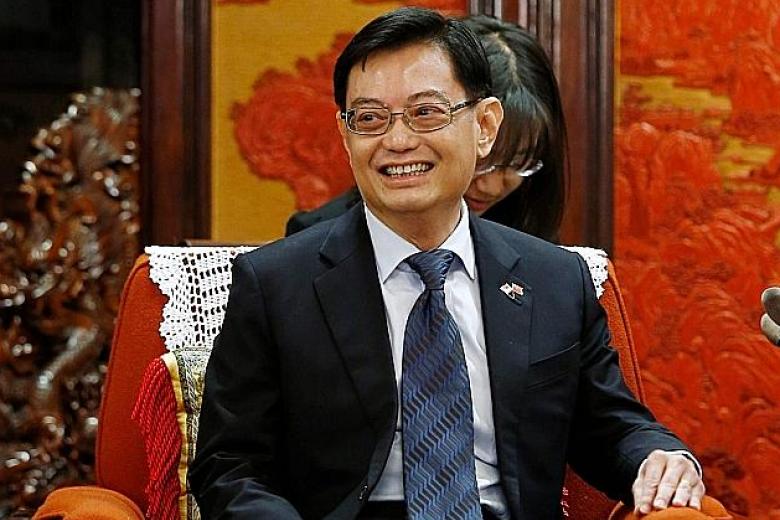I am sure our highly paid ministers will be pondering the steps to pre-empt that from happening ....
Report
Singapore could go into a recession in 2020 as the signs are there and if external conditions continue to deteriorate.
This is based on a report released on Tuesday, June 4 by the Institute of Chartered Accountants in England and Wales (ICAEW) and financial forecasting firm Oxford Economics, according to Today.
Export-dependent
Singapore, an export-dependent country, is bound to be the most hurt among major Southeast Asian economies by the escalating trade war between the United States and China, forecasts have predicted.
Shrinking economy
Singapore’s economy is predicted to shrink from the 3.1 percent growth in 2018 to 1.9 percent in 2019.
It will then recover slightly to 2.2 percent in 2020.
A country goes into recession when there is a fall in GDP in two successive quarters.
First quarter of 2019 bad
Singapore’s economy grew by 1.2 percent in the first quarter of this year.
This is the lowest growth rate in nearly 10 years, performing worse than the government’s flash estimate.
Surrounding countries less impacted
Singapore’s projected performance this year falls below the 4.8 percent growth forecast for the year across the region.
Out of six Southeast Asian countries tracked by the institute, Singapore will face the sharpest predicted slump among Indonesia, Malaysia, the Philippines, Thailand and Vietnam.
ICAEW’s 2019 forecast for Singapore comes within the Ministry of Trade and Industry’s prediction of 1.5 to 2.5 percent gross domestic product (GDP) growth announced in May 2019.
Vital signs weakening
There is a risk things could go south if external conditions further deteriorate.
The ICAEW report gave several reasons for a possible slowdown, as cited by Today:
• Singapore’s open and trade-dependent economy has been dented by trade protectionism in U.S. and China. This has been compounded by weaker global trade. Exports were 2.1 percent lower in the first quarter of 2019 than in the same period in 2018, mainly due to a sharp fall in goods exports.
• The outlook for exports remains downbeat, as the U.S. and China continue imposing tariffs. Both countries rank among Singapore’s largest trading partners.
Silver lining
A recession hitting Singapore is not a certainty, as the country still has some strong fundamentals.
• Singapore’s domestic demand, which includes household spending and the construction industry, has remained resilient and could offset the fall in trade. Ongoing public infrastructure projects such as the 21.5km North-South Corridor by the Land Transport Authority are in the works. However, the growth of residential construction activities has eased, and demand for durable goods such as motor vehicles have weakened.
• Electronics manufacturing sectors here are affected. Investment in machinery and equipment fell and firms have opted to reduce stocks.
• Singapore is affected by lower imports demand from China. China’s domestic economy has been generally slowing down since 2016, made worse by the trade war.
Report
Singapore could go into a recession in 2020 as the signs are there and if external conditions continue to deteriorate.
This is based on a report released on Tuesday, June 4 by the Institute of Chartered Accountants in England and Wales (ICAEW) and financial forecasting firm Oxford Economics, according to Today.
Export-dependent
Singapore, an export-dependent country, is bound to be the most hurt among major Southeast Asian economies by the escalating trade war between the United States and China, forecasts have predicted.
Shrinking economy
Singapore’s economy is predicted to shrink from the 3.1 percent growth in 2018 to 1.9 percent in 2019.
It will then recover slightly to 2.2 percent in 2020.
A country goes into recession when there is a fall in GDP in two successive quarters.
First quarter of 2019 bad
Singapore’s economy grew by 1.2 percent in the first quarter of this year.
This is the lowest growth rate in nearly 10 years, performing worse than the government’s flash estimate.
Surrounding countries less impacted
Singapore’s projected performance this year falls below the 4.8 percent growth forecast for the year across the region.
Out of six Southeast Asian countries tracked by the institute, Singapore will face the sharpest predicted slump among Indonesia, Malaysia, the Philippines, Thailand and Vietnam.
ICAEW’s 2019 forecast for Singapore comes within the Ministry of Trade and Industry’s prediction of 1.5 to 2.5 percent gross domestic product (GDP) growth announced in May 2019.
Vital signs weakening
There is a risk things could go south if external conditions further deteriorate.
The ICAEW report gave several reasons for a possible slowdown, as cited by Today:
• Singapore’s open and trade-dependent economy has been dented by trade protectionism in U.S. and China. This has been compounded by weaker global trade. Exports were 2.1 percent lower in the first quarter of 2019 than in the same period in 2018, mainly due to a sharp fall in goods exports.
• The outlook for exports remains downbeat, as the U.S. and China continue imposing tariffs. Both countries rank among Singapore’s largest trading partners.
Silver lining
A recession hitting Singapore is not a certainty, as the country still has some strong fundamentals.
• Singapore’s domestic demand, which includes household spending and the construction industry, has remained resilient and could offset the fall in trade. Ongoing public infrastructure projects such as the 21.5km North-South Corridor by the Land Transport Authority are in the works. However, the growth of residential construction activities has eased, and demand for durable goods such as motor vehicles have weakened.
• Electronics manufacturing sectors here are affected. Investment in machinery and equipment fell and firms have opted to reduce stocks.
• Singapore is affected by lower imports demand from China. China’s domestic economy has been generally slowing down since 2016, made worse by the trade war.
Last edited:

 PETER TASKER
PETER TASKER



